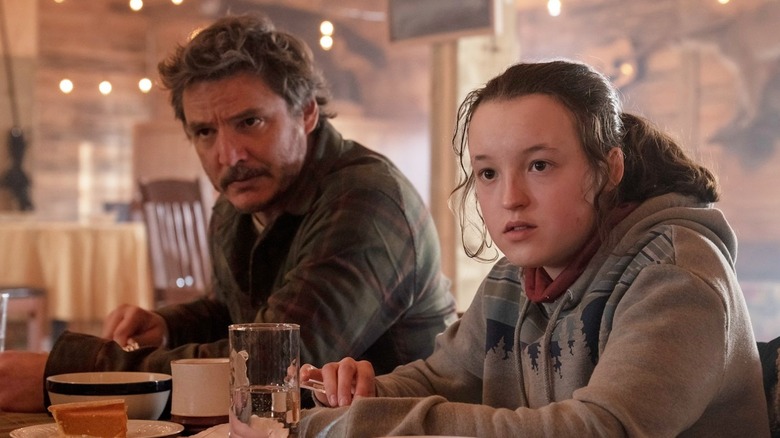
This post contains spoilers for “The Last of Us” Season 1
“The Last of Us,” HBO’s live-action adaptation of the video game of the same name, is an intense watch. The story follows Joel (Pedro Pascal) and Ellie (Bella Ramsey), two survivors of an apocalyptic plague that has wiped out most of human society. Some survivors are quarantined in the cities, corralled into zones overseen by an overzealous, fascistic government called FEDRA. Others live in the wild, fighting off hordes of infected — humans turned into monsters by the fungal parasite that brought about the end of the world. Joel and Ellie pick their way through the rubble of society, trying to stay alive as they search for people who might help find a cure.
“The Last of Us” sets itself apart through its willingness to explore wherever the story takes it. It’s a show unafraid to spend an episode fleshing out the backstories of people we haven’t met yet, prioritizing character-based storytelling over zombie action we’ve seen a thousand times before. When the action does come, it is often quick and ferocious, shocking eruptions of brutality interrupting an otherwise almost-lyrical meditation on relationship- and world-building. These powerful sequences heighten the character drama, both sides of the show serving the other in very productive ways. Read on for a look at the 10 most intense scenes in “The Last of Us” Season 1.
The infection spreads down Main Street (Episode 1)
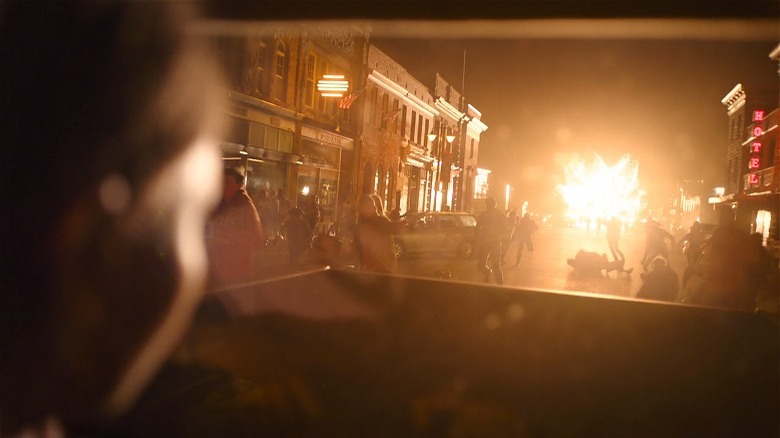
When we first meet Joel, the day before the infection kills the world, he’s living in Texas with his brother Tommy (Gabriel Luna) and his daughter Sarah (Nico Parker). That night, Tommy is arrested and Joel goes to bail him out; they return just in time to save Sarah from the next-door neighbor, an old woman infected by the fungal parasite.
The whole sequence is intense, but the highlight comes as they drive through the center of town. Chaos spills out onto the main street, unfolding in a series of long takes that show the utter barbarity with which people are attacking one another. In one particularly canny moment reminiscent of “The Blob,” a crowd of people runs screaming out of a movie theater with a “Midnight Madness” marquee, perhaps signaling that monsters from pop culture have now become frighteningly real. Then, the pièce de résistance: The camera swings around to show us that — in the direction they’re heading — a plane is falling out of the sky. It crashes right down Main Street, and a piece of flying shrapnel totals the car. Cut to black.
This sequence shows us what kind of show “The Last of Us” will be: brutal and uncompromising. Furthermore, it keys us into action scenes that are connected to concepts of family and protection. Sarah doesn’t make it, and that will affect Joel for the rest of the show.
‘Bomb this city and everyone in it.’ (Episode 2)
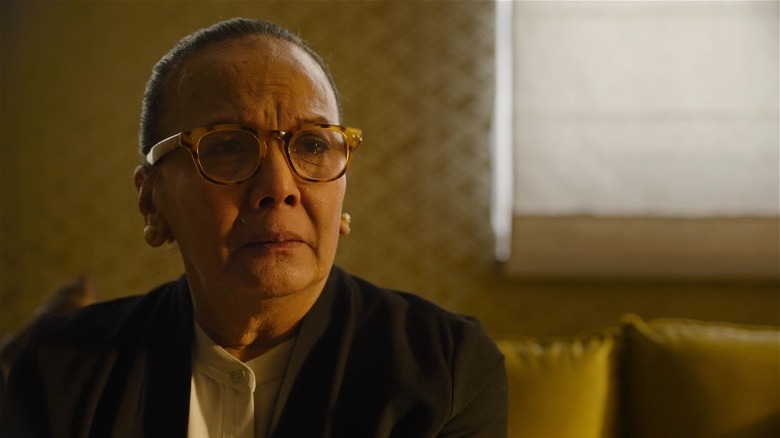
“The Last of Us” Episode 2 opens with a scene set in Jakarta, which we learned in the pilot was the source of the cordyceps outbreak. A mycologist (Christine Hakim) — someone who studies fungus — is brought in to assess the bodies of someone who seems to have picked up the infection early. She is, rightfully, horrified by what she sees.
There are certainly more action-packed scenes that could have made this list, but the following sequence’s quiet intensity more than earns its place. As the mycologist explains her findings to a military general (Yayu A.W. Unru), the conversation plays out in one long take. The shot takes more than three minutes to slowly dolly into a closeup of her face, which grows increasingly resolved as she finally offers her recommendation for what must be done to stop the infection from spreading: “Bomb this city and everyone in it.” It’s a chilling line delivered well; smartly, the show cuts to a closeup of the silent general, who looks horrified. It’s only then that Hakim lets her character begin to cry softly. “If someone could please drive me home,” she adds, “I would like to be with my family.”
We are still learning what the world of “The Last of Us” will be like in the second episode. This sequence shows that the society-killing pandemic will, ultimately, be a uniquely personal horror.
Tess’ sacrifice (Episode 2)
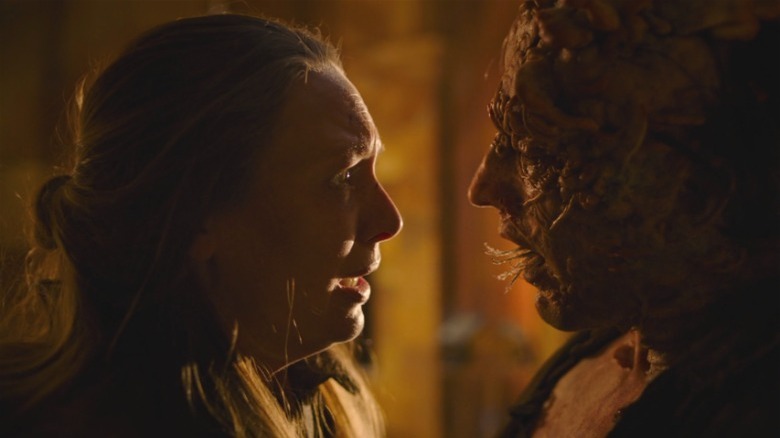
For the first two “The Last of Us” episodes, Anna Torv’s character Tess plays a major part in the action. She’s a rebel, a spy, and a protector figure, someone who is going to help Joel get Ellie out of Boston. Viewers could be forgiven for expecting her to be a major part of the show moving forward. Unfortunately for those of us who loved Torv on “Fringe” and “Mindhunter,” however, the infected have other plans.
There has been plenty of violence, but up until now, we haven’t quite seen what the mushroom zombies look like up close. We get our chance when Ellie, Joel, and Tess decide to go through a building instead of around it, and they are attacked by two monsters. They prevail, but it turns out the infected can send signals to one another through a vast underground network of fungus; before the trio have time to escape, they are set upon by a snarling horde of monsters. Oh, and Tess knows she’s been bitten.
What follows is one of the season’s most intense moments. In order to give the other two time to run, Tess sacrifices herself, planning to blow everything up. Her lighter doesn’t work, however, and one particularly gross monster presses its mouth to hers, strands of fungus creeping down her throat … before everything explodes. It’s an untimely end to a promising character, teaching us that on this show, no one is safe.
The raiders attack at night (Episode 3)
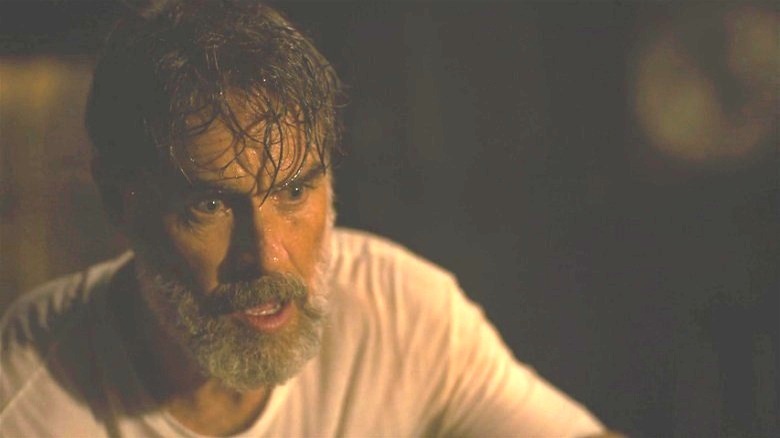
“The Last of Us” Episode 3 is largely a diversion from the ongoing story of Joel and Ellie’s trek across the post-apocalyptic wasteland that was America. Instead, the episode introduces viewers to Bill (Nick Offerman), a doomsday prepper who was perhaps the readiest of everyone when the cordyceps infection struck. Bill spends years holed up alone, turning his now-deserted neighborhood into a fortress of solitude. One day, however, he finds a man named Frank (Murray Bartlett) caught in one of his traps, and before either of them knows what’s happening, they’ve fallen in love.
Most of the episode is a surprisingly touching romance between two men who managed to find one another at the end of the world. However, this wouldn’t be “The Last of Us” without some pulse-pounding action, and sure enough, the episode features one of the most intense sequences in the entire series. Late one night, Frank is awoken by a cacophony outside. He staggers out into the street to find a full-blown battle underway in the rain, as Bill tries to beat back a band of raiders. There are explosions, electrocutions against Bill’s fencing, raging fires, and so many gunshots.
It’s a testament to the show’s character-building that we care so much about seeing Bill shot despite only having met him earlier in this episode. There are several attacks by humans in the season, but this is one of the most harrowing for that reason.
The Kansas City ambush (Episode 4)
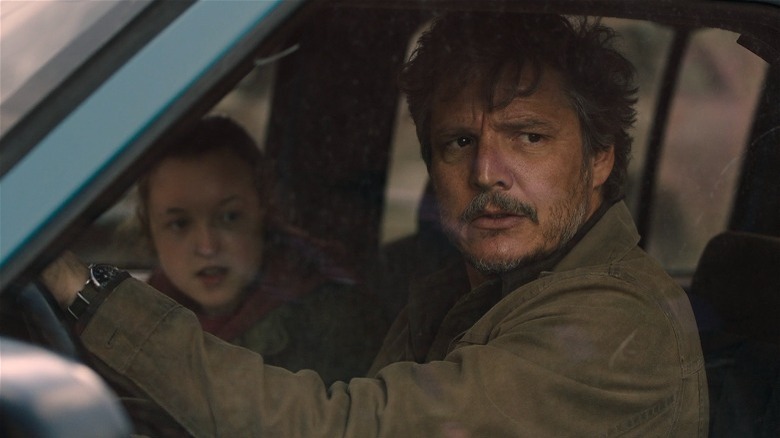
One of the best things about “The Last of Us” is the way no two episodes are quite alike. After the worldbuilding of the first two episodes and the comparatively tender love story in Episode 3, the fourth episode starts as a relatively muted affair. Making their way across the country, getting to know one another for the first time, Joel and Ellie drive into Kansas City expecting to find a FEDRA-controlled quarantine zone. Instead, the area is deserted. Ellie tries to read the map, reminding Joel, “This is my second day in a f***ing car, man!”
Before they’re able to wrap their heads around a desolate Kansas City, a man stumbles out of an alleyway asking for their help. Joel warns Ellie to put her seatbelt on. Sure enough, it’s a ruse. What makes the following sequence so intense is how chaotically it’s filmed. They take off down the street, Joel immediately aware that they’re being ambushed. The camera swings upward, and we barely get a glimpse of a man on a fire escape before he drops a cinderblock through the truck windshield, just as the truck rolls over a spike strip, while a woman with a gun steps out and begins shooting. The truck careens through the front wall of a laundromat, and a firefight breaks out. This sequence teaches us that in this world, at any moment, violence is ready to erupt. We’d better be ready.
The Bloater emerges from underground (Episode 5)
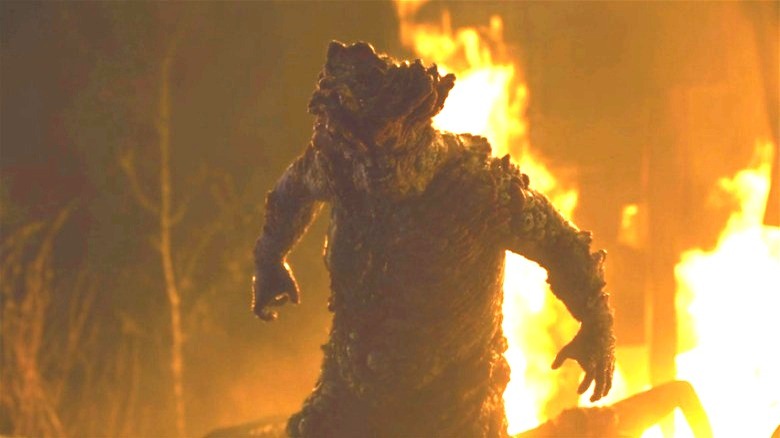
The Kansas City episodes of “The Last of Us” are built largely around human-on-human conflict. As Joel, Ellie, Henry, and Sam attempt to flee the area, desperate to escape Kathleen and her goons, they find themselves pinned down by her army. Just as Henry is about to give himself up, the ground underneath one of the cars collapses, and it lets loose a horde of snarling infected.
The visual of the infected pouring out of the ground — clambering over one another to claw their way to their victims — is unexpected in its ferocity. The show has included other scenes where the infected act as a mob, but this is the first time we’ve seen so many move so quickly and viciously. However, the scene tops itself as a massive fungus monster emerges — what fans of the game know as a Bloater. The moment redefines everything we thought we understood about how the cordyceps infection works, letting us know that there’s even more to fear than we were previously aware of.
The ensuing battle is one of the most intense in the entire series. Joel acts as a sniper, trying to clear a path for Ellie to escape; there are decapitations, explosions, stabbings, shootings, and more. Ultimately, Kathleen — who until this moment seemed like she might be emerging as a series Big Bad — is devoured. This is “The Last of Us,” after all; no one is safe.
Henry and Sam’s end (Episode 5)
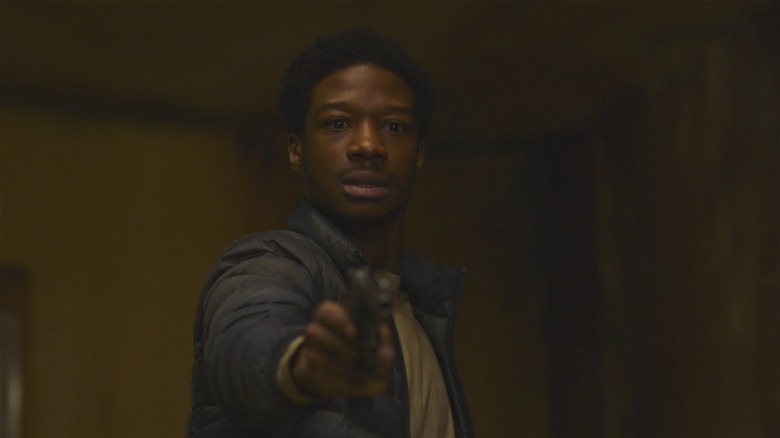
We learn at the end of Episode 5 that Joel, Ellie, Sam, and Henry didn’t ultimately escape the horde of underground infected the way they thought they had. Separated from their father figures, Sam confesses to Ellie that he’s been bitten, and she attempts to mix her own blood with his. She doesn’t know if this will work, but she knows that somehow, she’s immune, so she convinces Sam that he’ll be cured by the infusion.
Unfortunately, when she awakes the next morning, Sam has turned. This episode has already been intense enough, but this scene quickly ups the emotional stakes. The character dynamics shift second to second in ways that are both thrilling and disorienting. Sam attacks Ellie. They spill into the other room where Joel and Henry have been sleeping. Henry shoots the ground in front of Joel to prevent him from interfering. Henry shoots Sam in the head. Then, wracked with guilt — right as Joel and Ellie realize what he’s about to do — Henry kills himself.
It’s a quick, punchy, vicious sequence, fantastically acted by both Pedro Pascal and Bella Ramsey. It’s especially heartbreaking to see Pascal’s quiet, helpless fury when Henry prevents Joel from getting involved; it’s proof of just how much he’s come to care about Ellie, an important character moment wrapped up in one of the show’s most intense scenes.
If you or anyone you know is having suicidal thoughts, please call the National Suicide Prevention Lifeline by dialing 988 or by calling 1-800-273-TALK (8255).
Ellie gets bitten (Episode 7)
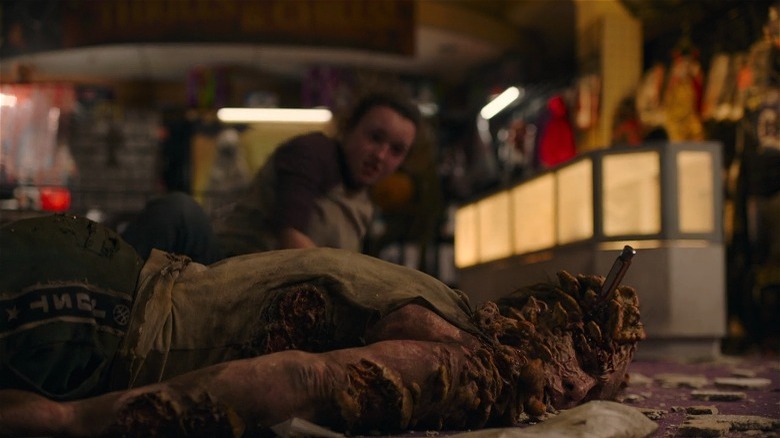
Like Episode 3, Episode 7 is an LGBTQ+ love story. This time, it’s an Ellie-centric flashback episode, showing us what her life was like before she was bitten. Back in Boston, a slightly younger Ellie is smitten with her roommate Riley (Storm Reid), who has run away from school to join the Fireflies. Over the course of a lovely night, Riley and Ellie explore an abandoned mall. Ellie is delighted by things like escalators and lingerie stores, while the more worldwise Riley is happy to show her friend around.
Unfortunately, they are not alone in the mall. Their noise wakes an infected, who viciously attacks the duo while they goof around in a Halloween store. As with many fight sequences in “The Last of Us,” this one is shocking in its savagery; what makes it all the more effective is that we already know how it’s going to end, even as we watch the girls defend one another. After all, the present-timeline Ellie we know has been living, apparently unharmed, with a seemingly-miraculous infection that just might make her the key to reversing the cordyceps pandemic. Riley, on the other hand, we’ve never met. Sure enough, when the dust has settled, both girls have been bitten, and Ellie will be the only one who survives the night. “We can wait out, be all poetic, and just lose our minds together,” Riley suggests, and for a moment, it seems like the most romantic line in the world.
Ellie escapes the cannibals (episode 8)
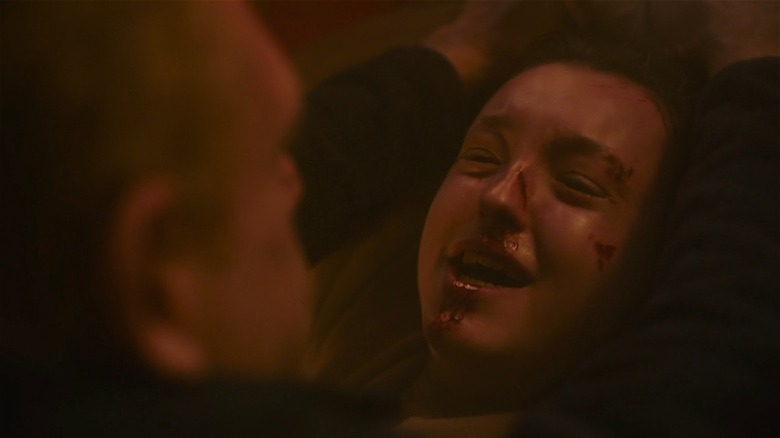
As Episode 8 opens, Joel is barely conscious, recovering from a stab wound. Ellie is desperate for food, and while she’s out hunting, she runs into two men — David (Scott Shepherd) and James (Troy Baker) — from a nearby settlement who offer to trade penicillin for part of the deer she’s killed. The interaction spirals out of control when the men reveal they are part of the same colony that sent the raiders who attacked Joel.
Numerous stressful sequences follow, but undoubtedly the most intense part of the episode is the end. Ellie, caged by her captors, has realized that they’ve survived so long by eating humans. Just as they are about to put Ellie on the menu, she reveals her infection as a way to buy herself time. As the cannibals debate over whether her infection is real, she grabs a meat cleaver, chops James in the neck, and dashes out of the room. What ensues is a cat-and-mouse game that descends into a brutal battle for Ellie’s survival. She sets the room on fire, and as they tussle amid the burning building, David delivers one of the most chilling lines of the season: “The fighting is the part I like the most.”
Ellie gets the upper hand, and the young girl explodes into a shrieking, screaming whirlwind, repeatedly stabbing David. Bella Ramsey’s anguished howls are haunting, made all the more poignant when Ellie reunites with Joel moments later. “It’s okay, baby girl,” he says. “I got you.”
Joel rescues Ellie from the Fireflies (Episode 9)
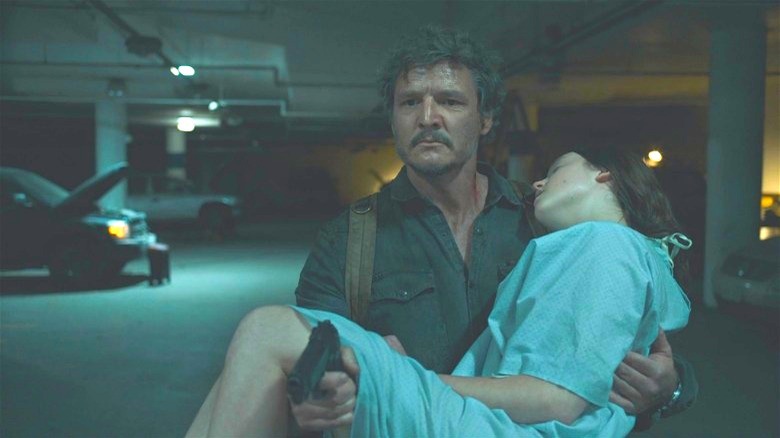
In the first season finale of “The Last of Us,” Ellie and Joel finally find the Firefly hospital they’ve spent the series searching for. Marlene (Merle Dandridge) is there, as is the doctor who believes he can create a cure for the cordyceps infection from Ellie’s immunity. Unfortunately, after they’ve been separated, Joel learns that the doctor’s method involves harvesting the cordyceps from Ellie’s brain, which will inevitably kill her. And he just can’t let that happen. He lost one daughter, after all, and he’s grown too fond of the spunky girl who loves her joke book of s***ty puns.
The episode’s climax sees Joel methodically massacring the hospital full of Fireflies — an organization that until now we’ve viewed as the good guys. He wastes no time, shooting anyone and everyone who stands between him and the girl he protects. What makes the sequence so intense isn’t just the coldness of the violence; it’s the quiet. Unlike most of the action scenes in this series, which are full of howling, snarling sound design, Joel’s rescue of Ellie is muted, the show’s plaintive score underpinning quiet scenes of death and destruction.
To save Ellie, Joel even has to kill Marlene. Instead of showing the act, the camera focuses instead on Joel’s expression, his anguish written into every line of Pedro Pascal’s face. Will Ellie be able to forgive him when she inevitably finds out? That’s for “The Last of Us” Season 2 to explore.



